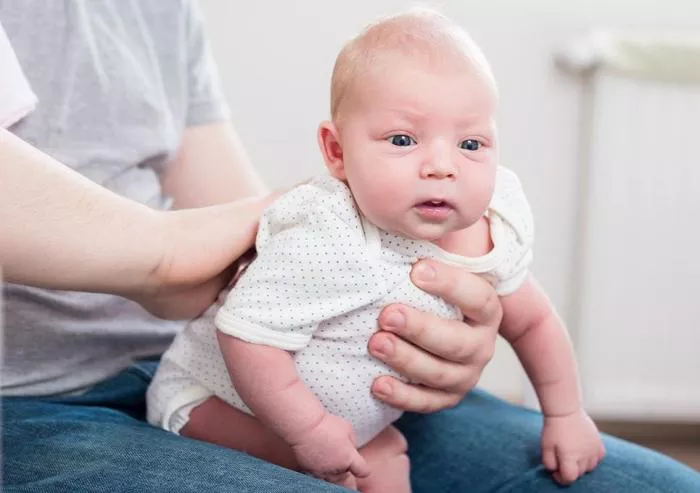Burping an infant is an essential part of feeding, helping to release the air that babies tend to swallow while eating. This seemingly small act can make a significant difference in your baby’s comfort and digestion. But how long should you burp an infant? In this article, we will discuss the importance of burping, how to burp effectively, and specific guidelines on how long you should spend burping your infant to ensure their comfort and well-being.
The Importance of Burping
Why Do Infants Need to Burp?
During feeding, whether breastfeeding or bottle-feeding, babies often swallow air. This air can become trapped in their stomachs, leading to discomfort, bloating, and even spit-ups. Burping helps release this trapped air, preventing discomfort and potential feeding issues.
What Happens If You Don’t Burp an Infant?
If a baby isn’t burped regularly, the trapped air can cause them to feel full before they’ve consumed enough milk, leading to inadequate nutrition. Additionally, the air can move into the intestines, causing gas pains and making the baby fussy and irritable. In severe cases, excessive gas can contribute to colic, a condition characterized by prolonged periods of crying and discomfort.
How to Burp an Infant
Common Burping Techniques
Over-the-Shoulder Burping:
Hold your baby upright with their chin resting on your shoulder.
Support their head and neck with one hand while gently patting or rubbing their back with the other hand.
Sitting on Your Lap:
- Sit your baby on your lap, facing away from you.
- Support their chest and head by cradling their chin in the palm of your hand.
- Lean your baby slightly forward and gently pat or rub their back.
Lying Face-Down:
- Lay your baby face-down across your lap.
- Support their head so it’s slightly higher than their chest.
- Gently pat or rub their back.
When to Burp Your Infant
Mid-Feed Burping:
- For bottle-fed babies, burp them halfway through the bottle.
- For breastfed babies, burp them when switching breasts.
Post-Feed Burping:
Always burp your baby after they’ve finished eating to ensure any swallowed air is released.
How Long Should You Burp an Infant?
General Guidelines
Burp Until the Baby Releases Air:
There’s no set time for how long you should burp your baby. The goal is to continue burping until they release the trapped air. This can take anywhere from a few seconds to several minutes.
Be Patient:
Some babies burp quickly, while others take longer. If your baby doesn’t burp after a few minutes, it’s okay to stop, especially if they seem comfortable and content.
Recognize the Signs:
If your baby starts to squirm, fuss, or show signs of discomfort during or after feeding, try burping them again. These behaviors can indicate trapped air that needs to be released.
How Long to Burp Based on Age
Newborns (0-3 months): Newborns tend to swallow more air while feeding, so burping may take longer—anywhere from 5 to 10 minutes.
Older Infants (4-6 months): As babies grow and their feeding technique improves, they tend to swallow less air. Burping may only take a minute or two.
Babies Starting Solids (6 months and older): Once your baby starts eating solid foods, they may not need to be burped as frequently or for as long, as they’ll swallow less air during feeding.
Tips for Effective Burping
Timing Is Key
Burp Before Baby Gets Too Hungry:
If your baby is too hungry, they may gulp air in their eagerness to eat, making burping more challenging.
Burp After Every Ounce for Bottle-Fed Babies:
This can help minimize the amount of air swallowed and reduce the need for lengthy burping sessions.
Be Gentle but Firm
Use a Steady, Gentle Patting Motion:
The key to effective burping is a gentle yet firm patting motion. Rubbing in a circular motion can also help.
Change Positions if Needed:
If one burping position isn’t working, try another. Some babies respond better to different positions.
Monitor Baby’s Reactions
Watch for Cues:
If your baby starts to fuss, arch their back, or show other signs of discomfort during feeding, stop and try burping them.
Know When to Stop:
If your baby seems comfortable and hasn’t burped after a few minutes, it’s okay to stop. Overburping can cause unnecessary discomfort.
Common Concerns and FAQs About Burping
What If My Baby Doesn’t Burp?
Some babies don’t swallow much air during feeding and may not need to burp every time. If your baby doesn’t burp but seems content and shows no signs of discomfort, it’s likely they’re fine without it.
Can Overburping Cause Problems?
Overburping, or trying to force a burp when it’s not needed, can cause discomfort and lead to more spit-ups. It’s important to balance burping with your baby’s comfort.
When Can I Stop Burping My Baby?
Most babies stop needing to be burped regularly between 4 to 6 months of age, once their digestive systems mature and they swallow less air during feeding. However, every baby is different, so pay attention to your baby’s cues and adjust accordingly.
See also: Is Hiccups Common in Newborns: What You Need to Know
Conclusion
Burping is a crucial part of feeding in the early months of your baby’s life, helping to release trapped air and prevent discomfort. While there’s no exact time limit on how long you should burp an infant, the key is to be patient and responsive to your baby’s needs. By using the right techniques and paying attention to your baby’s cues, you can ensure they’re comfortable and well-fed, making feeding time a more enjoyable experience for both you and your baby.


